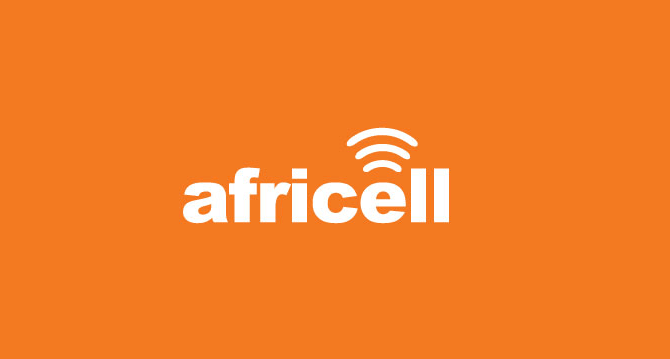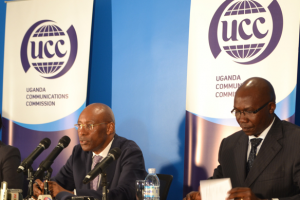After all the rumours and speculations, Its now confirmed that Africell has bought majority stake in Orange Uganda this week. Orange is the key brand of France Telecom, an international Telecom operator based in France with over 203 million customers in 32 countries. The stakes are high. How will the market respond to this buy-out? Here’s all we know about the Africell-Orange deal and how it fits into the current market conditions.
Who is Africell.
WIth headquarters in Banjul Gambia, Africell is a subsidiary of Africell Holdings with three mobile subsidiaries in Gambia, Sierra Leone and DRC. Africell has a combined active subscriber base of over 7 million as of Q4 2013 according to Wikipedia.
ITWeb, reports that Africell holds a dominant leading market share in Gambia and Sierra Leone and was able to achieve a 20% market share in the DRC in less than two years of operations facing well established operators. The group currently has over nine million active subscribers and forecasted to reach 11 million by year’s end making it one of the largest privately owned Telecom companies in Africa.
With a 69% market share in Gambia totalling to 1.1 million subscribers out of 2 million Africell still doesn’t seem to have had any experiences with Mobile Money or 4G which seem to be a huge money maker in the Uganda Telecom sphere. Many people are questioning if It will maintain Orange Uganda’s niche as an ISP or try to battle to get more Voice customers. We will watch how it plays out.
Speed-up to the buy out
The Telecom industry has seen remarkable growth since its liberation in the early 90s. Today, there are about 16 million mobile subscribers in Uganda consuming voice and data services. As voice revenues dwindle, carriers have delved into a series of mergers, acquisitions and sale-outs in order to survive in the tightly contested market. Warid Telecom that sparked fierce price wars in 2008, in which it was offering low standard voice tariffs for 24 hours got acquired by Airtel in 2013. This acquisition is said to have brought Airtel’s subscriber base to a total of 7 million though many dispute the figures and UCC (Uganda Communications Commission) does not give the official figures.
MTN Uganda which has the largest subscriber base of about 8 million has invested heavily in infrastructure across the country. The Telecom has also been laying hundreds of Kilometres of Fibre cables to beef-up it’s infrastructural capacity and has close to 2,600KM of cable already. MTN also has launched 4G LTE in a number of areas around kampala.
However, while everyone else was capitalizing on voice market, Orange Uganda was busy developing a new niche market — data. This gave it an edge over incumbents and helped it survive in the market, but not for long. Africa is still a predominantly voice-driven market. This is attributed to several factors including the proliferation of feature phones rather than data-driven smartphones, low internet literacy levels among others.
How will existent subscribers be affected
Many customers are afraid of what will happen after the acquisition is finalised.We contacted Orange Uganda on whether the brand will change from Orange to Africell and if Africell will maintain the internet niche or choose a different strategy for operations. Orange responded that they currently don’t have all the information we need but will furnish it as soon as they have it so we will keep you updated.
Since this is an acquisition and not a merger, Africell has full power to decide how they deal with the Orange Brand. These are some of the possible scenarios.
1. Africell has to choose between maintaining the brand and keeping the loyal customers who identify with the brand or doing an overhaul/rebranding which is a big risk considering that they only have 620,000 customers whom they cannot afford to lose.
2. Considering Orange’s current Internet infrastructure Africell would definitely want to keep the brand as the ISP of choice for reliable, affordable and fast internet rather than change the niche. Better still they will probably build on the successes of Orange Uganda so far.
3. Africell may have a different strategy, pricing and packing of its products and services so you may have to kiss your current favorite tariffs and products goodbye.
“We are confident in achieving a quick turnaround of the operation in Uganda; our operating model has proven that we would be able to offer an attractive proposition to the Ugandan consumer allowing us to quickly climb the market share ladder and bring the operation into profitability,” adds Elias Arwadi, Chief Operations Officer of the Africell Group said.
What’s in for Africell
Africell will be inheriting market leadership in data provision that Orange Uganda has amassed over the years. With 620,000 clients that tap into the most distributed 3G coverage in Uganda, Africell won’t have to build its own infrastructure from ground up. Orange also launched its 4G LTE network in some places in Kampala and then expanded to Jinja as of this year.
With the current Internet infrastructural development by Google’s project link, Its definitely clear that Africell has to invest in more than just internet provision because once Google completes the project, the ISP sector will be leveled and good internet will not be a niche anymore since Google will sell internet to ISP’s affordably bringing down the costs to the consumer
Besides data Orange has consistently beat its competitors as the network with the best voice quality, great customer care, an annual experiential event among other great services.
Mergers or acquisitions can be tricky We hope that Orange doesn’t face the same issues that Airtel faced in acquiring Warid. Africell has an uphill task in quickly understanding the market and adapting really fast so as to survive or thrive in the Ugandan Telecom Industry.
Discover more from Dignited
Subscribe to get the latest posts sent to your email.












